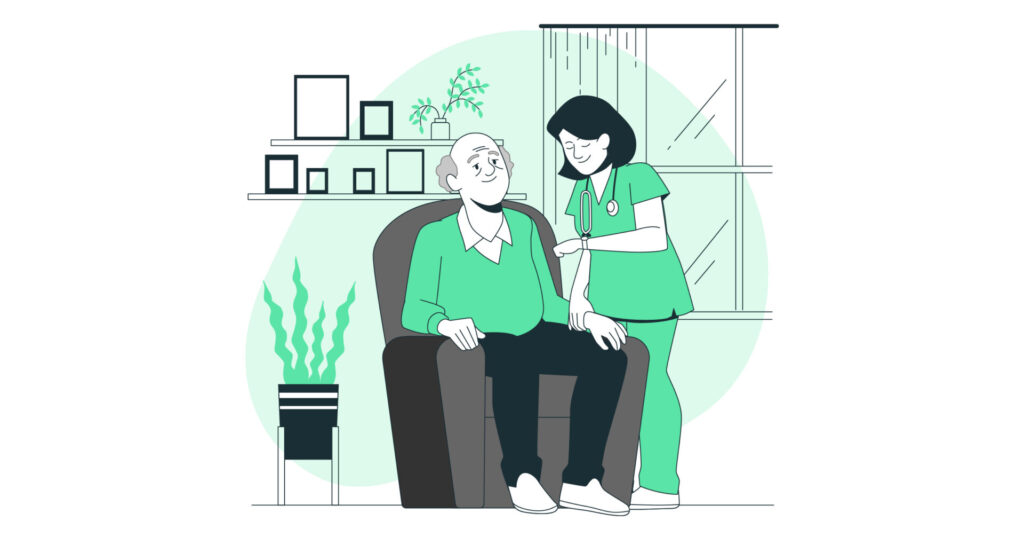Geriatric population includes older adults of and above the age of 65 years. This age group includes the adults who have retired from their jobs, have established and nourished their families and now are spending their days reaping the benefits of their hard work.
Unfortunately, many of these older adults face depression which usually goes undiagnosed, only 10% of those facing depression get treatment for it. It leads to deterioration of their already fragile health and even premature death.
The types of depressive disorders in geriatric population are Major Depressive Disorder (MDD), Persistent Depressive Disorder (PDD/Dysthymia), Substance Induced Depressive Disorder, Depressive Disorder due to Medical Condition.
What are the Symptoms of Geriatric Depression?
The symptoms noted in geriatric depression may differ slightly from that of clinical depression. Some of these symptoms are often misunderstood as “the result of old age”. These include:
- Persistent sadness for more than two weeks
- Excessive worrying
- Frequent crying
- Weight changes
- Excessive fatigue
- Difficulty sleeping
- Loss of self worth
- Feelings of worthlessness and guilt
- Memory problems
- Difficulty making decisions
- Excessive fidgeting
- Increased irritability
- Unexplained or aggravated pain or ache
- Suicidal tendency/Fixation on death
- Ignorance towards personal care and hygiene
Are there any Risk Factors?
Geriatric depression, like any other mental illness, has some risk factors which makes a person meeting that criteria more prone to that illness. The risk factors of geriatric depression being:
- Women are at a higher risk of suffering from depression
- Being a widowed, divorced, unmarried
- Lack of family and social support
- Past experiences of traumas
- Previous history of depression
- Family history of mood disorders
- History of suicide attempts
- Disability
- Recent loss of loved one
- Substance abuse
- Presence of chronic illness or pain
- Social isolation
- Change in lifestyle, settings
- Lack of physical activity
What are the Causes of Geriatric Depression?
Each individual case may have a different cause, but some of the most common causes of geriatric depression are:
- Health problems such as thyroid disorders, Parkinson’s disease, dementia, Alzheimer’s disease, stroke, cancer, paralysis
- Loneliness or isolation from your own family and friends
- Reduced sense of purpose in life after years of striving
- Fear of death
- Recent major loss which includes people close to you or material things like property, money, cherished possessions
- Ignorance or ill-treatment from family
- Living away from home in an old-age home setting
- Inadequate sleep causes an imbalance in our hormones and leads to depression
Can Geriatric Depression be Treated?
- Psychotherapy is the most important part of the treatment with or without the medications. It is sufficient for depression at mild or moderate levels.
- Medication includes antidepressants. The choice of antidepressants depends on the patients current health conditions. Antidepressants may be addictive for geriatric population hence only severe cases of depression are recommended medication.
- Electroconvulsive Therapy (ECT) is the final option after all the other treatments have failed to make progress. Since older adults are fragile and vulnerable, ECT is avoided unless extremely required.
- Repetitive Transcranial Magnetic Stimulation (rTMS) is also one of the extreme treatments for depression. It includes magnetic waves to activate the brain.
Geriatric Depression Scale (GDS)
The Geriatric Depression Scale Long Form created by Yessavage et al is a 30 item questionnaire with responses in yes or no format. The Short Form consists of 15 items and takes 5 to 7 minutes to finish therefore it is used for those with physical illness and moderate dementia catering to their low attention spans. Some are positively framed and some are negatively framed.
The GDS is only a screening tool which can be used as proof for presence of depression. It does not assess suicidality and therefore is no substitute for the diagnostic interview by a mental health professional.
Read more :
Teen Depression: Why Do Many Teenagers Feel Depressed?
Overcoming Toxic Relationships
A Way Out Of Toxic Relationships
Psychotherapies to Treat Depression





